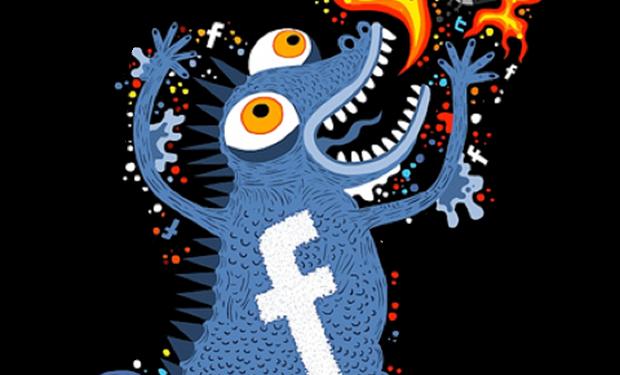 Some publishers saw their referral traffic crash last month, as FB pushes to keep readers inside its own content garden.
Some publishers saw their referral traffic crash last month, as FB pushes to keep readers inside its own content garden.
Referral traffic from Facebook took a big hit last month for many of the big name publishers using the Facebook Instant Articles platform.
“A traffic analytics company, speaking anonymously to avoid getting on Facebook’s bad side, said Facebook traffic across clients, representing some of the biggest publishers, declined about 20 percent from January to March,” writes Lucia Moses in Digiday. “The data showed the biggest drops came from publishers that have been heavily invested in Instant Articles, the fast-loading mobile initiative.”
“One publisher, which has been all in on Instant Articles, has seen a commensurate drop in direct traffic, since readers view Instant Articles without leaving the app,” Moses writes. “’It’s been a shift from bucket to bucket,’ this publisher said. Another publisher said traffic from Facebook suddenly fell 25 percent in mid-March and hasn’t recovered. A third said Facebook referral traffic declined by one-fourth in the first three months of the year versus the last quarter of 2015.”
Let’s not pretend we’re surprised by any this. Part of the Faustian bargain publishers made with Team Z included giving up that traffic, knowing readers would stay right on the social platform to read their content. In exchange, publishers were meant to develop a new revenue stream through on-app ads.
Per FAQ page in Facebook’s developer resources: “Publishers can sell and serve their own rich-media and display ads in Instant Articles and keep 100% of that revenue. To monetize unsold inventory, publishers can also display ads from Facebook’s Audience Network.”
But Facebook has placed an upper limit on publisher ads, and they haven’t allowed native advertising yet, which is more lucrative to publishers than regular ads. (That may be changing shortly, as Facebook announced a technology partnership with ad tech company Polar that will allow publishers to include native ads, Moses notes.)
Facebook has so far declined to comment. And to be fair, not all publishers are seeing the same kinds of dramatic dips, especially if they weren’t that reliant on Facebook to begin with.
“The more publishers depend on Facebook for referral traffic, the bigger the impact changes in traffic can have. Last year, Facebook surpassed Google as a referral source for publishers. Some publishers now see upwards of 75 percent of their social traffic coming from Facebook,” Moses explains.
“When that traffic drops, one way publishers can make up the difference is by paying Facebook to surface their stories in people’s feeds, Moses continues.
“People are going to have to buy traffic from Facebook to level out the peaks and valleys,” said one of the publishers who declined to be identified. “Long story short, they’re putting a vice around people’s necks.”
That’s gotta hurt. Seems the critics who predicted brands will regret their decision to play along may have been right. At the moment, it really does look like a path to suckerdom.
Now that Mr. Z has opened up Instant Articles to all brands, will you use it? Can you replace the potential loss of traffic with FB’s ad revenue? Or is third party distribution too much of a crapshoot?
It’s still very early in the game, and the rules continue to change. At the recent F8 developer conference, Zuckerberg made his intentions clear, explains Dillon Baker in Contently.
“[Zuckerberg’s] presentation demonstrates just how thoroughly Facebook wants to dominate the future of digital communication,” Baker writes. “Its product suite already makes up a huge portion of attention time that people, particularly young people, spend on their devices.”
It’s up to publishers to decide what’s in their own best interest. Hopefully they’ll have the sense and the nerve (I’m concerned by how many publishers were reluctant to speak on the record about this) to recognize and preserve the value of a direct relationship with their readers.
